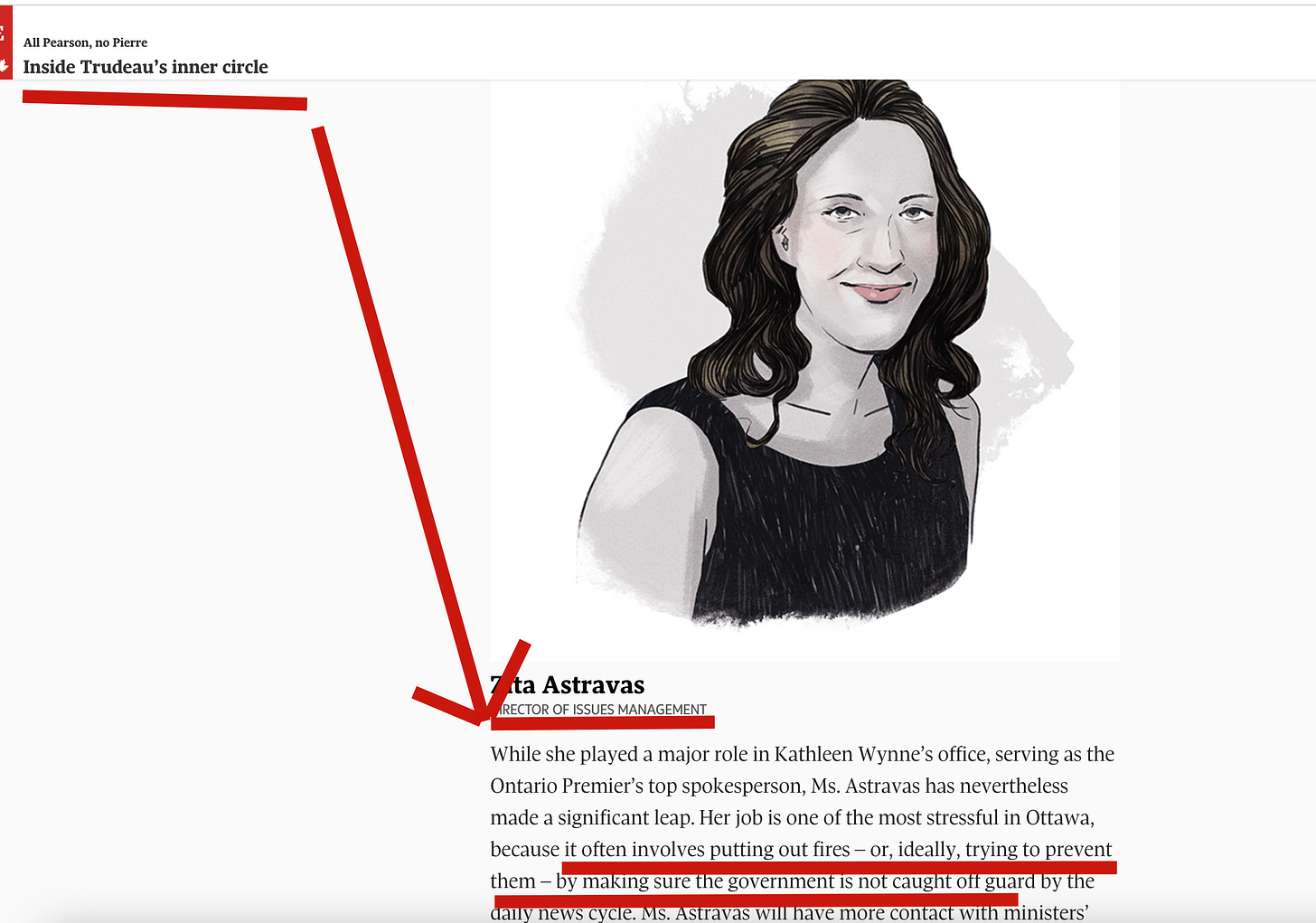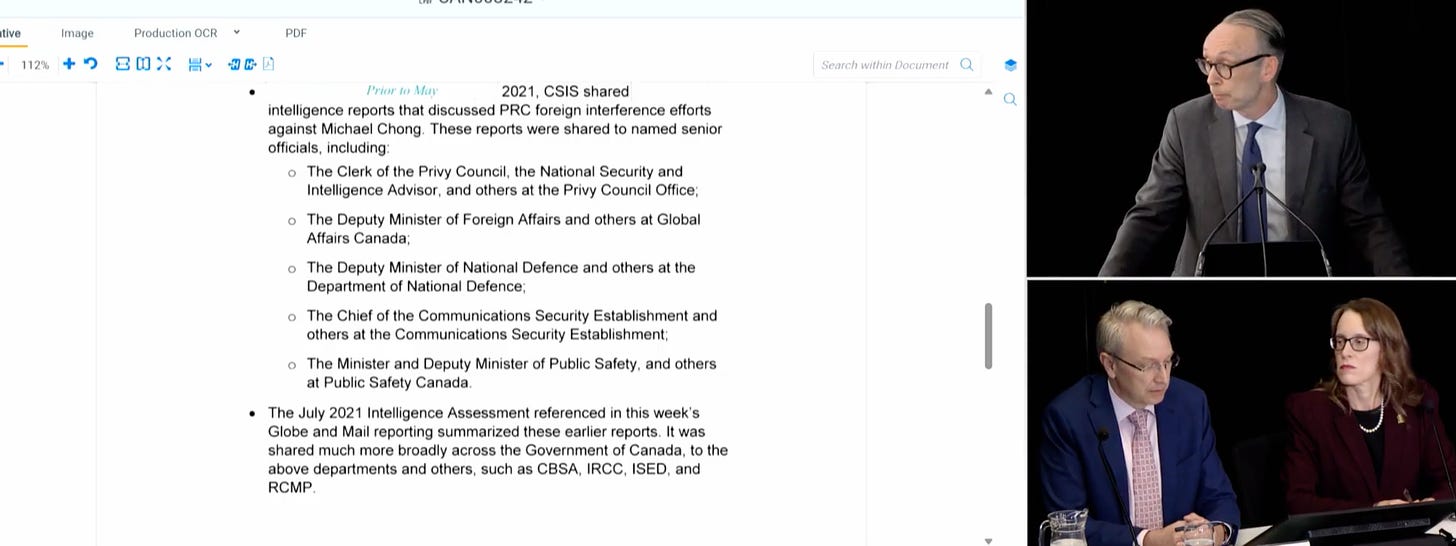Breaking: New Evidence Suggests Trudeau’s Staff Shielded Him from Chinese Election Interference Reports

OTTAWA, Canada — A growing body of evidence at the Hogue Commission is painting a damaging picture for Prime Minister Justin Trudeau’s administration, suggesting that senior officials may have not only influenced changes to intelligence reports regarding Trudeau’s party members but also shielded Canada’s leader from sensitive intelligence on Chinese election interference, and may have delayed CSIS investigations into an influential Liberal Party member.
This comes on top of testimony suggesting they may have drafted documents to provide cover for the government's alleged inaction, which was exposed in Canadian media reports.
In testimony Friday, former CSIS Director David Vigneault revealed he was "very surprised" to learn that a crucial intelligence paper detailing Chinese foreign interference efforts was never shared with Prime Minister Justin Trudeau. Vigneault testified that the "Targeting Paper," which summarized PRC influence activities targeting Canadian parliamentarians, was allegedly withheld by then-National Security and Intelligence Advisor (NSIA) Jody Thomas.
Vigneault testified that he only discovered the omission during a review conducted by the National Security and Intelligence Review Agency. He confirmed that Thomas had never discussed her decision not to share the paper, nor had she sought his input.
“I was very surprised to learn that the less sensitive version of the Targeting Paper was never distributed to the Prime Minister,” Vigneault stated. “The intelligence was highly pertinent, and I thought it should have been shared.”
Vigneault emphasized the importance of the report, saying: "I think in our view, in my personal view, this was a very important piece of analysis that was bringing together the totality of what we knew, including using some exquisite intelligence that provided the picture of the continuum of the specific activities employed by the PRC to target elected officials in Canada. So I thought that this was a very illustrative piece of intelligence analysis that should have been, yes, read by the Prime Minister."
The Targeting Paper, originally drafted in 2020, was a comprehensive intelligence report that brought together sensitive information from CSIS, including details from highly classified sources. The report mapped the extent of PRC influence operations targeting Canadian officials and parliamentarians. Vigneault testified that the initial version of the paper was redrafted and sanitized in 2021 to exclude some of the most sensitive details.
It isn’t known why Trudeau was shielded from the more sensitive document, much less the sanitized version, but the situation raises the possibility that the Prime Minister’s bureaucracy elected to downplay or avoid potential political crises for the Trudeau government.
According to Vigneault, Thomas decided not to forward even the redrafted version because she believed the conduct described was “more diplomatic than foreign interference.”
In cross examination from NDP MP Jenny Kwan’s lawyer, Vigneault said that Thomas should have come back to CSIS to discuss her dissenting opinion, rather than blocking Trudeau from the crucial reporting.
“The NSIA should not have been a gate-keeper, or an editor, of professional intelligence produced by CSIS,” Kwan’s lawyer said. “Is that fair?”
“I think it is fair to say that,” Vigneault said.
Parallels to the Michael Chong Case
Vigneault’s testimony brings fresh scrutiny to the Trudeau government’s handling of Chinese interference threats and echoes accusations made by Conservative MP Michael Chong. Just a day earlier, Chong’s lawyer Gib van Ert accused Thomas of crafting a “nonsense” memo to deflect blame for the government's failure to warn Chong about Chinese threats targeting his family.
In his testimony, Chong expressed disbelief that the government claimed numerous senior officials, including former Public Safety Minister Bill Blair, had not read or acted upon urgent CSIS reports. "CSIS did its job in conveying that intelligence to the most senior parts, the central agencies, and nothing happens," Chong said.
Chong learned about PRC threats against his family from a Globe and Mail article in 2023, despite CSIS having informed the government of the threats in 2021. In his statement at the time, Chong said: “I am profoundly disappointed to find out through a Globe and Mail report that the Trudeau government knew two years ago a PRC diplomat, working out of the consulate in Toronto, was targeting my family in Hong Kong.”
His lawyer van Ert pressed the issue, suggesting that senior officials were quick to blame CSIS.
Delay in Bill Blair's Warrant Sparks Further Concerns
Testimony surrounding a delayed warrant approval for Public Safety Minister Bill Blair adds another layer to concerns about government inaction. The Globe and Mail — in a story titled “Bill Blair took months to approve CSIS surveillance of Liberal powerbroker” — cited national security sources alleging that Blair’s office allegedly stalled a warrant approval regarding CSIS targeting of Liberal Party politician Michael Chan, a former Ontario Liberal government minister.
Blair has denied any delay in previous testimony, and Chan has denied any wrongdoing in Chinese interference allegations.
However, while warrants are normally signed within ten days, CSIS officials testified Friday, documents show this particular warrant faced an unusual six-week delay.
In explosive questioning, Chong’s lawyer Gib van Ert pressed witness Michelle Tessier, a former senior CSIS official, pointing out that Blair had testified that he signed the warrant within hours, but CSIS records showed the warrant was in Blair's office for at least 54 days, raising concerns about Blair’s top aide, Zita Astravas, a former Ontario Liberal government staffer.
Van Ert asked, "How could it have been in his office all that time, with his Chief of Staff knowing about it for 54 days or more, and not sharing that with him?" Tessier, the CSIS witness, could not provide an explanation, stating, "I can't explain that."
Van Ert then zeroed in on the role of Zita Astravas, Blair's Chief of Staff, and suggested that she was at the center of key questions regarding whether Blair and other senior officials had received critical information about the threats to Michael Chong. He also questioned whether Astravas was responsible for stalling the process by which Blair addressed the Michael Chan warrant, and whether Astravas had shared sensitive information regarding the warrant with Trudeau’s office.
Tessier, under examination by van Ert, admitted that she had briefed Zita Astravas on the warrant even before it was delivered to Blair’s office, but she couldn't recall how long the time period was. This means that a senior Trudeau political aide — with strong ties to the Prime Minister's Office — had knowledge of the matter for an unknown length of time, but certainly more than the 54 days the document sat in Blair's office.
Van Ert continued, "Do you have any sense of why Ms. Astravas would've kept that information from the Minister?" Tessier again responded, "No.”





